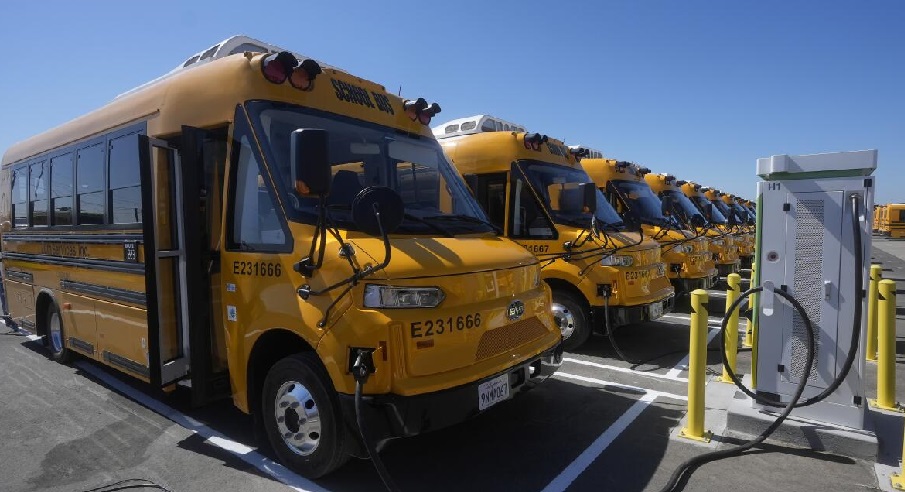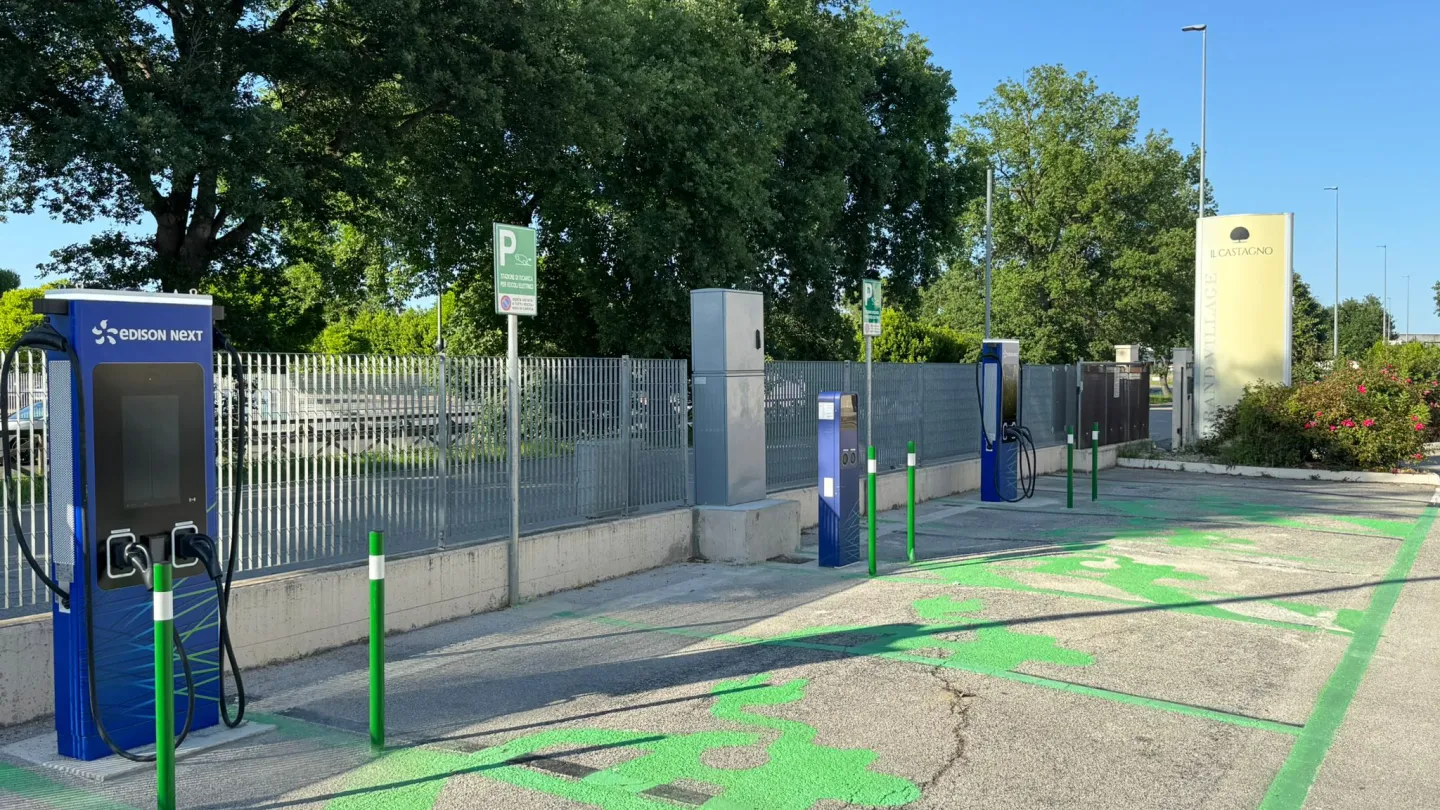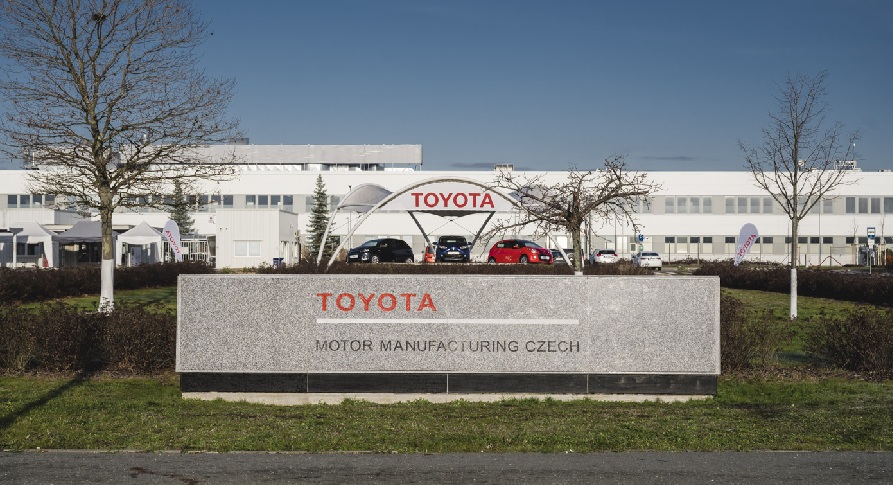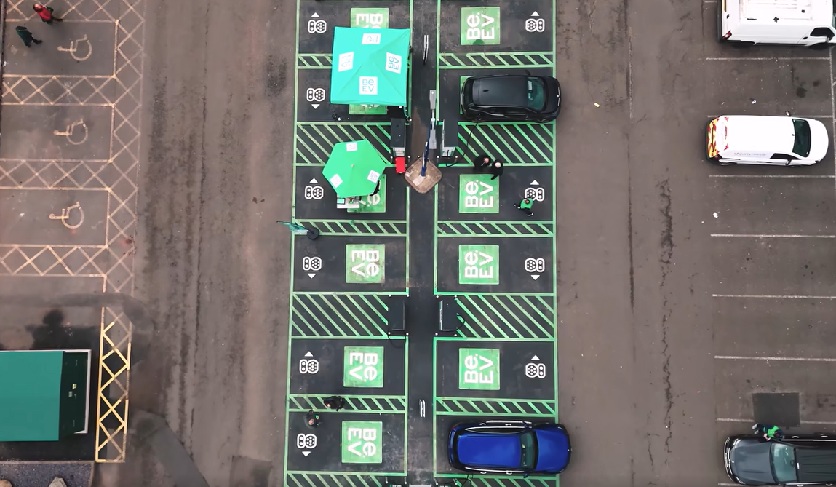The State of California has awarded 500 million dollars for educational agencies to buy zero-emission school buses and chargers, furthering the state’s lead in having the most zero-emission school buses in the nation.
The Zero-Emissions School Bus and Infrastructure (ZESBI) project has selected 133 educational agencies to receive 1,000 zero-emission school buses and related charging infrastructure to school districts and other local educational entities.
The grants are expected to be finalized by the end of the year.
The incentive program is a collaboration between the California Air Resources Board (CARB) and the California Energy Commission (CEC), and is administered by CALSTART, a nonprofit transportation organization.
Liane Randolph,CARB Chair, says: “Cleaning up the state’s school bus fleet is central to California’s efforts to provide clean transportation in priority communities that are disproportionately hurt by air pollution.”
“The vast majority of these grants will go to local educational agencies that serve these communities,” she adds.
David Hochschild, CEC Chair, states: “California has set important benchmarks for removing internal combustion vehicles from our roads and replacing them with clean transportation. CEC is helping school districts move in that direction by funding ZESBI.”
As California continues to lead in the deployment of zero-emission vehicles and in building the necessary infrastructure, the focus on school buses targets a sector where the switch to cleaner technology will lead to better public health outcomes for students and the communities where they live.
Zero-emission school buses play a key role in California’s efforts to achieve carbon neutrality by 2045 and help protect children who are particularly vulnerable to the health impacts from diesel exhaust.
In California, all school bus purchases made by school districts will need to be zero-emission technology by 2035, with an extension until 2045 for frontier local educational agencies in rural communities.
The time children spend in school bus commutes accounts for less than 10% of a child’s day, yet the commutes have been found to contribute up to 33% of a child’s daily exposure to some air pollutants in a diesel-fueled school bus, according to a 2003 study funded by CARB.
To date, California has provided more than 1.3 billion dollars in incentives to school districts, funding more than 2,300 zero-emission school buses, of which 1,100 are already in use.
Over 70% of the zero-emission school buses in use are in the state’s most pollution-burdened communities.
More than 300 California school districts and local education agencies have purchased at least one zero-emission school bus – and a few have made the switch to a 100% clean fleet.
The school buses in this round of grants are expected to reduce 18,000 metric tons of greenhouse gas emissions annually — equivalent to taking more than 4,000 cars off the road for a year.
Awardees receive up to 375,000 dollars to replace internal combustion engine school buses with zero-emission vehicles, in addition to awards up to 95,000 dollars per school bus to purchase and install associated charging infrastructure.
Awardees will be required to scrap an old internal combustion engine school bus for every new school bus purchased.
First priority for the funding was given to small or rural school districts, as well as local educational agencies that have a large proportion of students who receive free or reduced-price meals, are in foster care, or are English-language learners.
Local educational agencies located in low-income or disadvantaged communities received secondary priority.
Approximately 98% of local educational agencies that have been selected for funding serve low-income or disadvantaged communities.
READ MORE
-
Italy welcomes ABB’s new 50 kW charger: First C50 units installed at Il Castagno outlet
The installation, completed in early June, is part of ABB E-mobility’s Early Adopter Program (EAP), a global initiative aimed at gathering real-world insights to refine new products in their intended environments.
-
Czech Republic in focus: Toyota to build its first electric vehicles in Europe
Toyota is expected to begin production at its new megacentre in the Czech Republic from 2028. Once fully operational, the facility is projected to produce around 100,000 EVs per year.
-
Be.EV installs 16 ultra-rapid chargers at Gallagher Retail Park
The site offers 150 kilowatts charging facilities within a 50,000 sq ft retail park that features major brands such as Decathlon, Costa and B&M.










